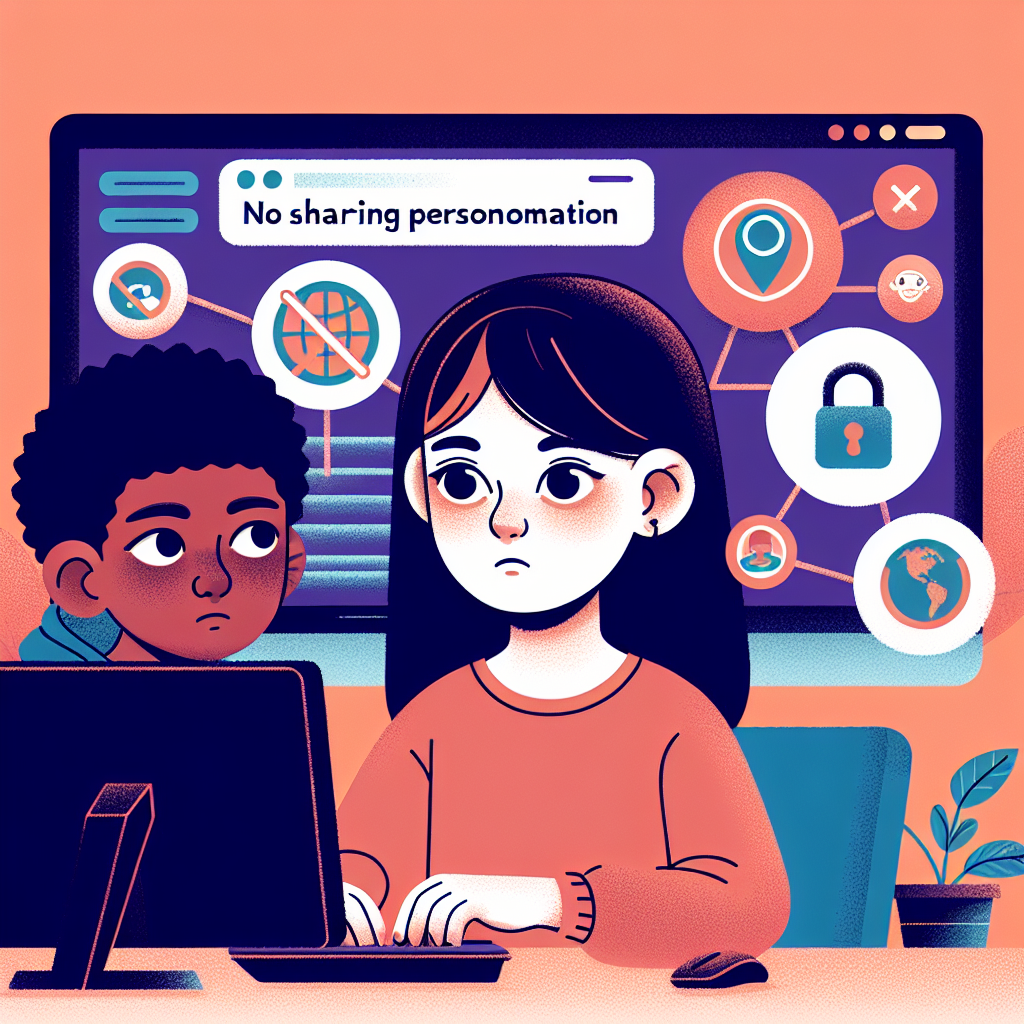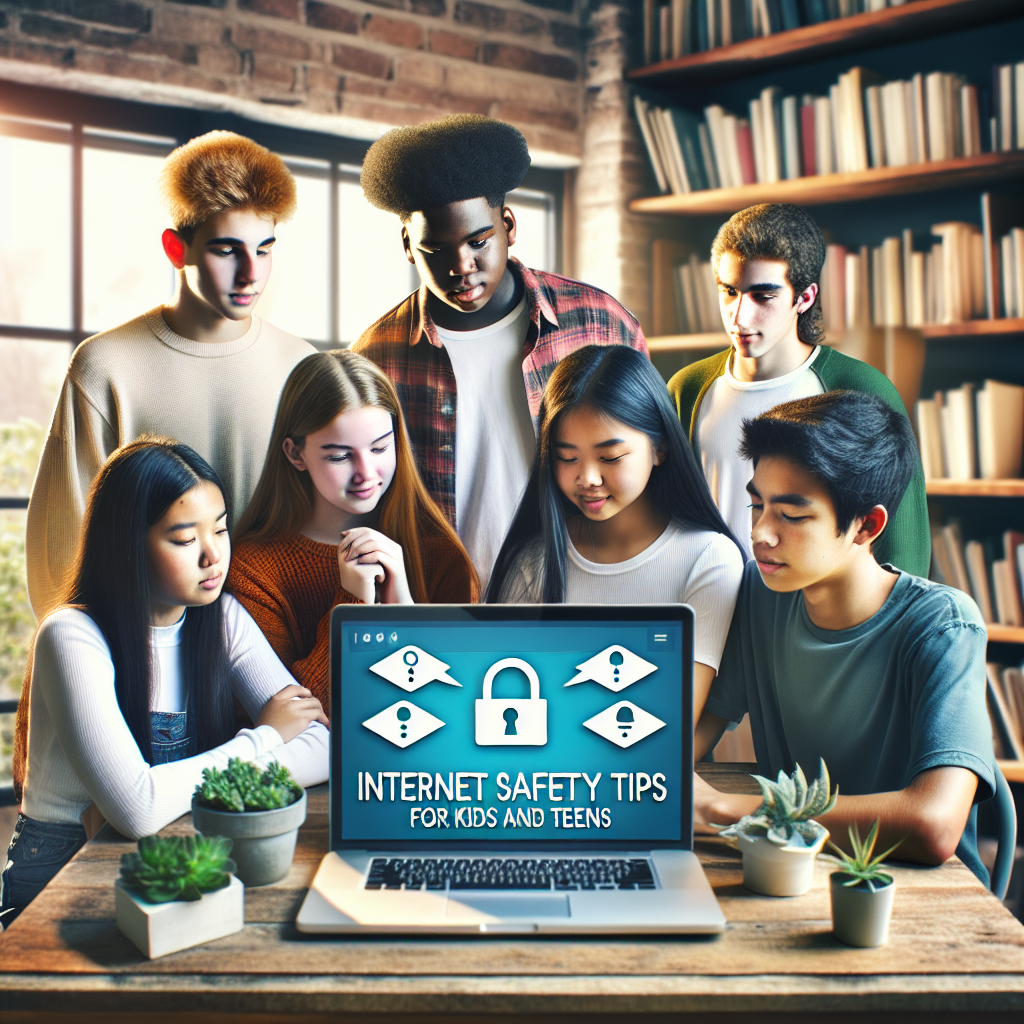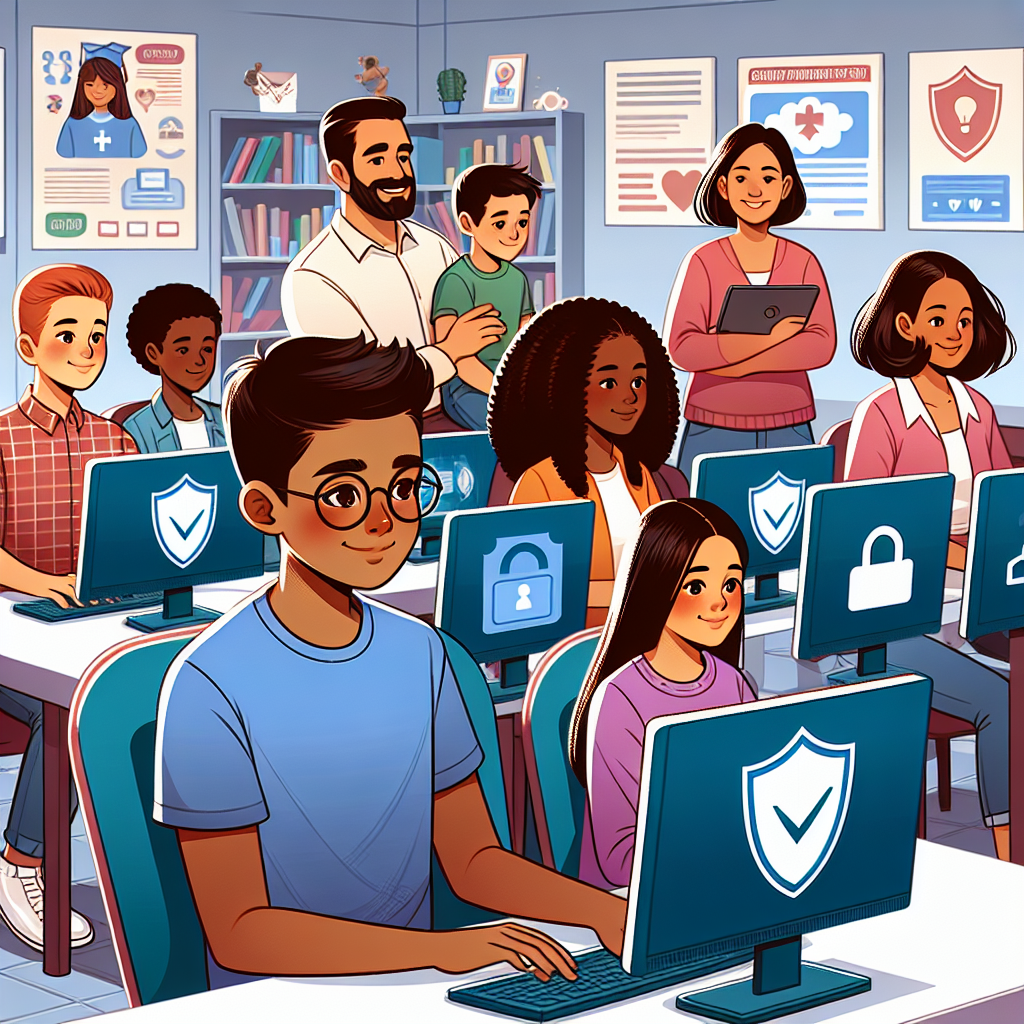In today’s digital age, it’s crucial for kids and teens to learn how to navigate the vast world of the internet safely. From social media platforms to online gaming, the online realm offers endless opportunities for learning and entertainment. However, it also comes with its risks, ranging from cyberbullying to online predators. In this guide, we will explore essential internet safety tips for young individuals to help them protect their personal information, avoid potential dangers, and make smart choices online. By empowering kids and teens with the knowledge and skills to stay safe, they can fully enjoy all the internet has to offer without compromising their well-being.
Understanding the Risks of the Internet
In today’s digital age, understanding the risks that come with using the internet is crucial for both kids and teens. By being aware of the potential dangers, they can navigate the online world more safely and responsibly. Here are some key points to consider:
- Importance of online safety education
- Education about internet safety should start at an early age and continue as children grow older.
- Schools and parents play a vital role in teaching children how to protect themselves online.
-
Topics such as privacy settings, safe browsing habits, and recognizing online threats should be covered in online safety education.
-
Common online dangers for children and teenagers
- Cyberbullying is a prevalent issue that can have serious emotional and psychological consequences for young individuals.
- Online predators may use social media and chat rooms to target vulnerable children and teens.
- Exposure to inappropriate content such as violence, explicit material, or misinformation can negatively impact a child’s development.
- Phishing scams, malware, and identity theft are risks that kids and teens should be cautious about when sharing personal information online.
Setting Up Secure Online Accounts

When it comes to setting up secure online accounts for kids and teens, there are several crucial steps that should be taken to ensure their safety in the digital world. Two key measures to prioritize in this regard are:
-
Creating strong and unique passwords: Encourage children and teenagers to use passwords that are complex and not easily guessable. A strong password typically consists of a mix of letters (both uppercase and lowercase), numbers, and special characters. It’s essential to avoid using common words or phrases, as these can be vulnerable to hacking attempts.
-
Enabling two-factor authentication for extra security: Two-factor authentication adds an extra layer of protection to online accounts by requiring users to provide two different forms of identification before gaining access. This could involve entering a code sent to their phone or email in addition to their password. By enabling this feature, kids and teens can significantly reduce the risk of unauthorized access to their accounts, even if their passwords are compromised.

Safely Navigating Social Media Platforms
Navigating social media platforms can be a fun experience for kids and teens, but it is crucial to prioritize safety while doing so. Here are some essential tips to ensure a secure online presence:
-
Adjusting privacy settings to limit exposure: One of the first steps to enhancing safety on social media is to review and adjust privacy settings. By customizing these settings, users can control who can view their profile, posts, and personal information. It is advisable to set profiles to private to restrict access to only approved followers or friends. Additionally, limiting the visibility of personal details such as phone numbers, addresses, and school information can help prevent potential risks.
-
Being cautious about sharing personal information online: Kids and teens should exercise caution when sharing personal information on social media platforms. This includes refraining from posting sensitive details like full names, birthdates, locations, and vacation plans. Cybercriminals or online predators can misuse such information to exploit individuals. Encouraging young users to think twice before sharing any personal data online can significantly reduce the chances of falling victim to cyber threats.
Recognizing and Avoiding Online Scams
When it comes to navigating the online world, kids and teens must be equipped to recognize and avoid various online scams that may target them. These scams come in various forms, from phishing attempts to fraudulent websites, and it’s crucial for young internet users to understand the warning signs and how to protect themselves.
Identifying phishing attempts and fraudulent websites
Phishing attempts are deceptive tactics used by cybercriminals to trick individuals into sharing sensitive information such as passwords, credit card details, or personal information. Kids and teens should be wary of emails, messages, or pop-ups asking for such information, especially if they appear to be from unfamiliar sources or contain urgent requests. Encourage them to verify the legitimacy of the sender before responding or clicking on any links.
Fraudulent websites often mimic legitimate sites to deceive users into providing personal or financial information. Teach children to check the website’s URL for any inconsistencies or misspellings, as scammers often create URLs that are similar to well-known sites. Additionally, look for secure website indicators such as “https://” and a padlock symbol in the address bar before entering any sensitive data.
Understanding the risks of clicking on unknown links or downloading attachments
One common tactic used by scammers is to embed malicious links or attachments in emails or messages. Advise kids and teens to exercise caution when clicking on links from unknown sources, as these could lead to malware infections or phishing scams. Encourage them to hover over the link to preview the URL before clicking, and if in doubt, refrain from accessing the link altogether.
Downloading attachments from unfamiliar sources can also pose significant risks, as these files may contain viruses or malware designed to compromise the device’s security. Remind young internet users to only download files from trusted sources and to run regular antivirus scans on their devices to detect and remove any potential threats.
Communicating Responsibly Online
When it comes to communicating online, kids and teens should always prioritize responsible and respectful interactions. Here are some important tips to keep in mind:
- Encouraging respectful and kind interactions: Stress the importance of treating others online with the same respect and kindness as they would in person. Remind them that words typed on a screen can still have a real impact on others’ feelings.

– Reporting cyberbullying or inappropriate behavior to adults: Make sure kids and teens understand the significance of reporting any instances of cyberbullying or inappropriate behavior to a trusted adult. Encourage open communication and assure them that seeking help is not a sign of weakness, but a proactive step towards maintaining a safe online environment.
Monitoring Online Activity
- Using parental control tools and software:
- Parents can utilize various parental control tools and software available to monitor their children’s online activities. These tools often allow parents to set limits on screen time, block inappropriate websites, and track their child’s online behavior.
- By using these tools, parents can have a better understanding of what their kids are doing online and can take necessary steps to ensure their safety.
-
It is essential for parents to regularly check and update these parental control settings to adapt to their child’s changing online habits and interests.
-
Establishing open communication with parents or guardians about online experiences and concerns:
- Encouraging open communication between children and parents or guardians regarding online activities is crucial for ensuring internet safety.
- Parents should create a safe space for children to share their online experiences, questions, or concerns without fear of judgment or punishment.
- By fostering a trusting relationship, parents can address any potential online risks or issues promptly and guide their children on how to navigate the digital world responsibly.
FAQs – Internet Safety Tips for Kids and Teens
What are some important internet safety tips for kids and teens?
It is crucial for kids and teens to remember to never share personal information online, such as their full name, address, phone number, or school name. They should also be cautious when interacting with strangers online and always think before posting or sending anything, as once something is posted online, it can be difficult to remove.
How can kids and teens protect themselves from online predators?
Kids and teens should avoid engaging in private conversations with strangers online and never agree to meet someone they have only communicated with online. It is important for them to tell a trusted adult if they ever feel uncomfortable or threatened by someone they have encountered online.
What should kids and teens do if they experience cyberbullying?
If kids or teens are being cyberbullied, it is important for them to save evidence of the bullying, block the bully, and report the incident to a trusted adult or the online platform where the bullying is taking place. It is also essential for them to remember that they are not alone and to seek support from friends, family, or a counselor.
How can parents help their kids and teens stay safe online?
Parents can help by setting clear rules and guidelines for internet use, regularly monitoring their child’s online activity, and having open and honest conversations about internet safety. It is also important for parents to teach their kids and teens how to protect their personal information and be cautious when interacting with others online.


